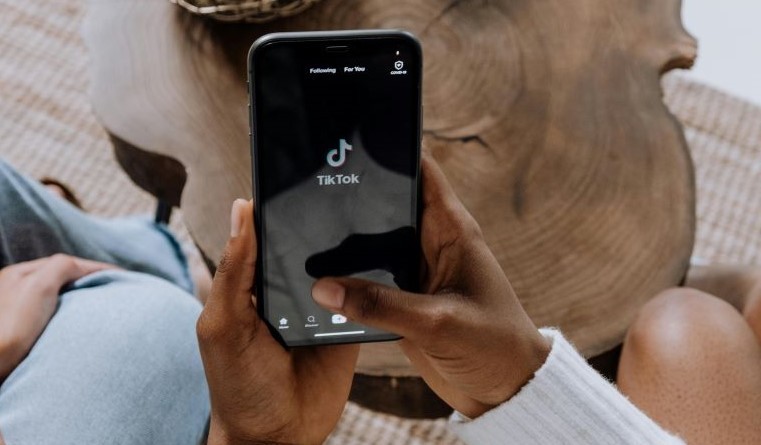Lessons from the “very demure, very mindful” trademark issue
11 September 2024

TikTok user Jools LeBron went viral, gaining over 2 million followers after posting a video commenting how “very demure … very mindful” presents herself in an office setting. However, Lebron’s joy was short-lived when Jefferson Bates applied to trademark the viral phrase just weeks later on August 20, 2024. In a now-deleted video, Lebron expressed frustration over the situation, sparking support from her followers. Despite the trademark filing, the outcome for Lebron is still uncertain, and the internet shouldn’t assume Bates’ application will succeed.
Apparently, according to recent news reports, two other unknown women have also filed applications with the U.S. Patent and Trademark Office for variations on the “very demure … very mindful” phrase – one by a woman named Kassandra Pop for “very demure, very cutesy” and another by a woman named Almondia White for “always demure and very mindful.”

Yang Shuh Gooi | senior associate @ Skrine, Kuala Lumpur
Yang Shuh Gooi, a senior associate at Skrine in Kuala Lumpur, said that based on presently known facts, he thinks that this is an instance of trademark squatters trying to take advantage of a new but wildly popular catchphrase.
“Not much is currently known about Pop, White and Jefferson Bates (the first person to have attempted to trademark the phrase ‘very demure, very mindful’),” he said. “However, they appear to be unconnected to the originator of the phrase, content creator Jools LeBron. The fact that these trademark applications have only recently popped up in the past couple of weeks, crucially after LeBron’s TikTok video went viral, suggests that these are not individuals with prior rights to the phrase.”
He added: “In any event, I think the chances of success of these apparent squatters’ applications ought to be rather slim, at the very least under Malaysian law. A mark which is devoid of any distinctive character is prohibited from registration during substantive examination by the trademark registry. The words “very demure, very mindful” are plain dictionary words which are not inherently distinctive in and of themselves. However, a mark can nevertheless be registered if it has factual distinctiveness, i.e. it has in fact acquired a distinctive character as a result of its use. I imagine it would be difficult for these individuals, who seemingly have no connection with the phrase, to prove that they have acquired factual distinctiveness through long-standing and widespread use.”
“Even if the applications pass the substantive examination phase, LeBron would no doubt oppose their registration once they are published for third-party opposition. The Malaysian trademark system operates under the ‘first to use’ principle rather than ‘first to file.’ This means that the person who first uses a trademark within Malaysia holds common law ownership rights over it, and their right would trump that of the person to file an application for the same mark first (assuming the latter person only begins using the mark later),” he explained.
“LeBron has also now filed her own application for the catchphrase, and she should be able to overcome the issue above about distinctiveness in the mark,” he continued. “One potential hindrance for LeBron, however, is that trademark rights have to arise out of use in the course of trademark in a specific class of goods or services. After all, the whole point of trademark protection is to prevent consumers from being confused between different businesses. LeBron may be the creator of the phrase and made it go viral, but has she really used it in the course of trade and tied it to goods or services? If LeBron began, say, selling merchandise under the catchphrase, that ought to confer on her stronger trademark rights.”
A right to trademark
According to Shuh, a good first step would be to conduct a search on the relevant jurisdiction’s trademark registry database, whether based on the proprietor name or the mark name, to confirm whether the mark is already registered. He said that things become trickier when the mark is not registered, but common law rights still accrue in the mark (under the tort of passing off), as the trademark registry’s database does not cover unregistered marks).
He said: “Engaging private investigators or market researchers to conduct a survey is advisable in order to be thorough and ensure that you are not infringing on someone’s existing rights. Otherwise, general searches online or general queries among the industry can be done to see if a particular word, phrase or logo is being used by a person or business in a trademark sense as a source indicator of their goods or services. Keep an eye out for whether the TM symbol is being used next to a word or image, as that is an obvious notification that they are using it as a trademark.”
Moving forward, what should content creators learn from this issue?
He said: “Content creators should take heed of the importance of applying to register any word or logo – any sign really – which has become signature to them and is used to identify their particular image and brand, as soon as practicable. People often only think of a brand name or logo as registrable as a trademark but do not realize that even a slogan or catchphrase, just like in LeBron’s case, is capable of qualifying as a trademark – so long as it distinguishes their business from others.”
“Certainly, if a squatter is not the first user and does not have prior rights, the content creator would be able to oppose the squatter’s trademark application or even apply to invalidate the mark if it were registered unbeknownst to the content creator. No doubt that is what LeBron and her legal team are aiming to achieve now. However, proactively registering the mark yourself first would help avoid the hassle and legal fees (and heartache) of going through the rigmarole of applying for opposition or invalidation of a squatter’s application,” he added.
- Excel V. Dyquiangco






